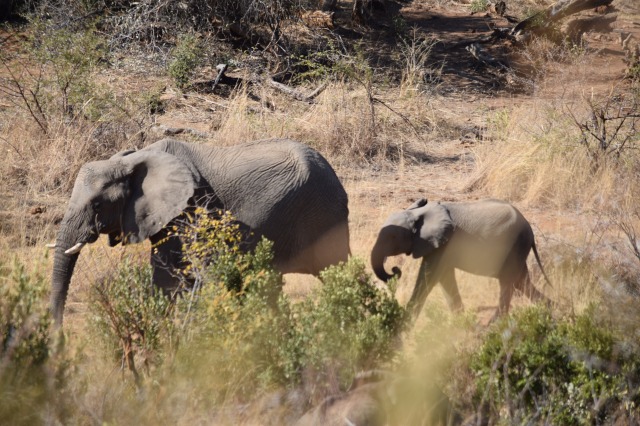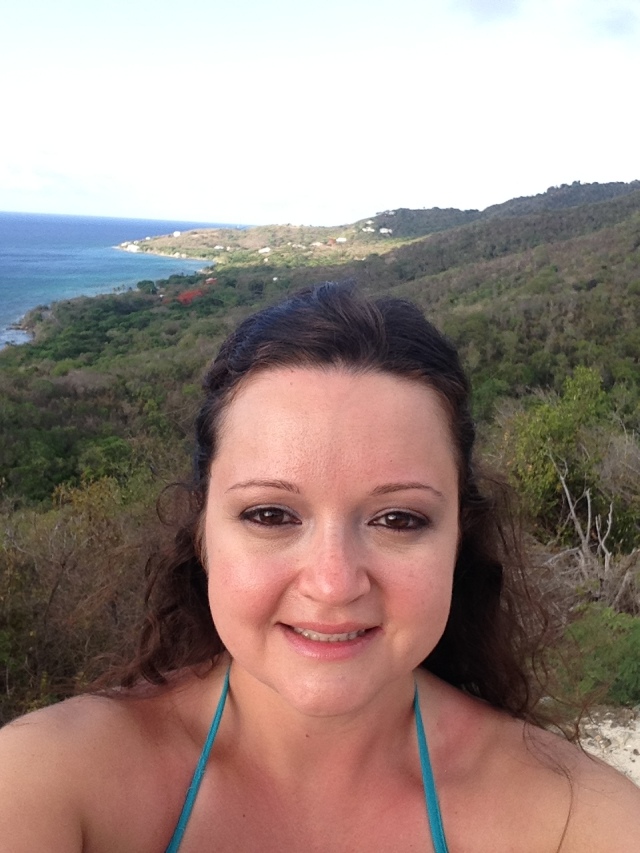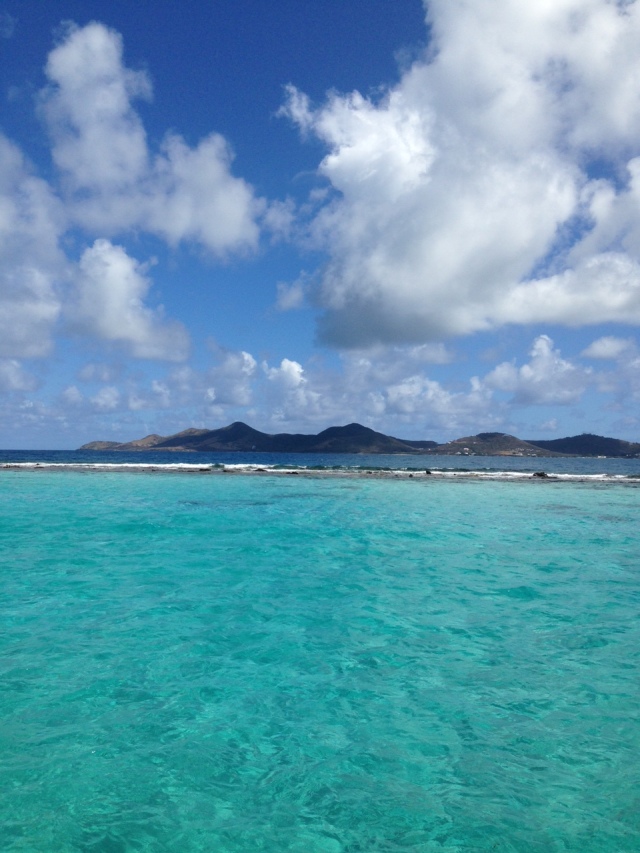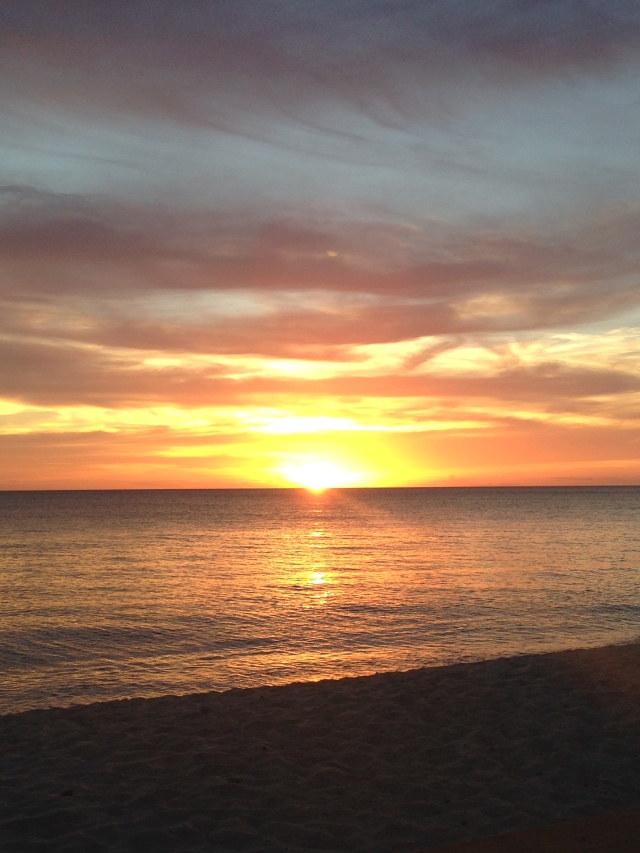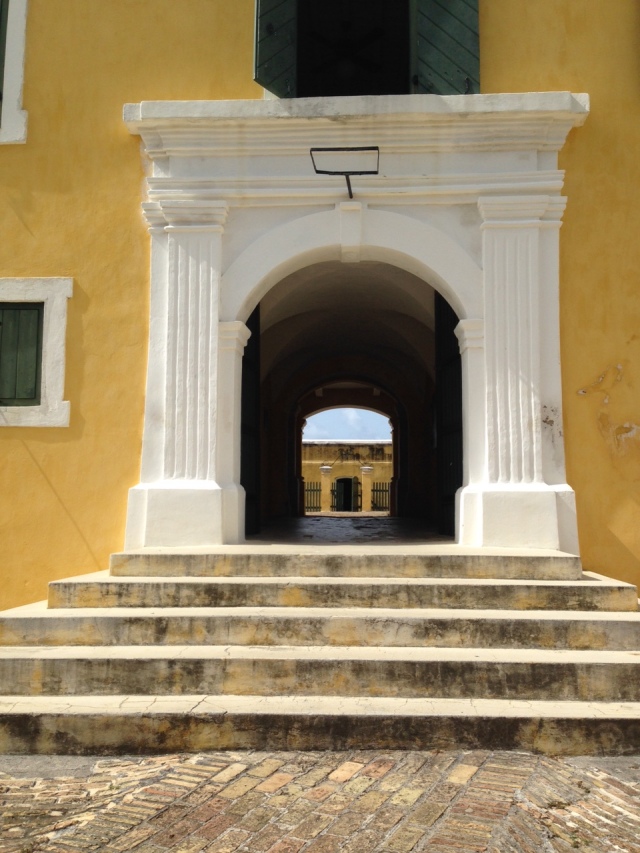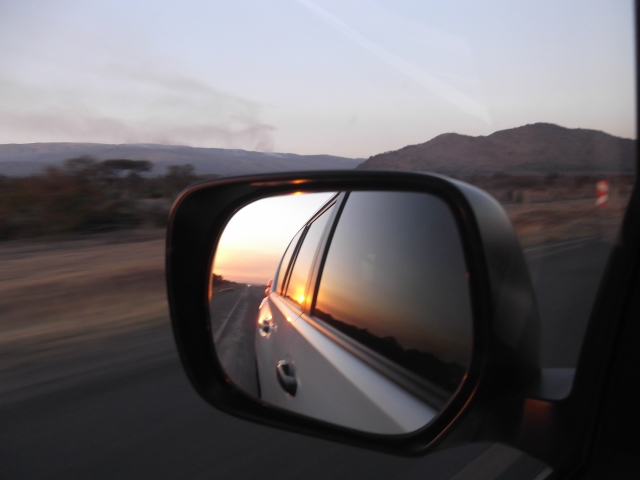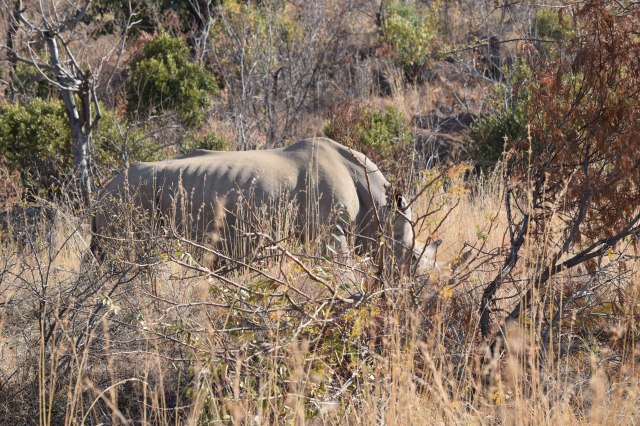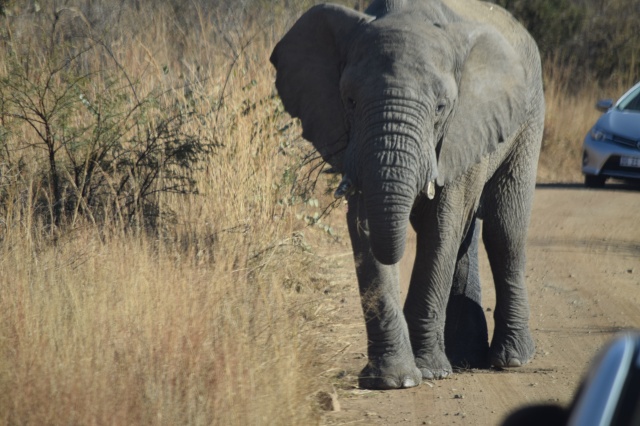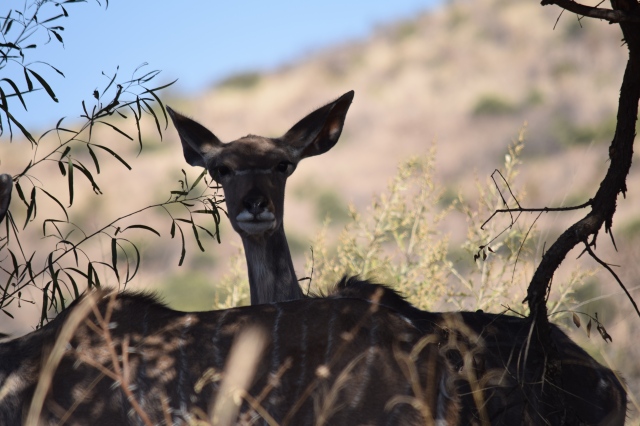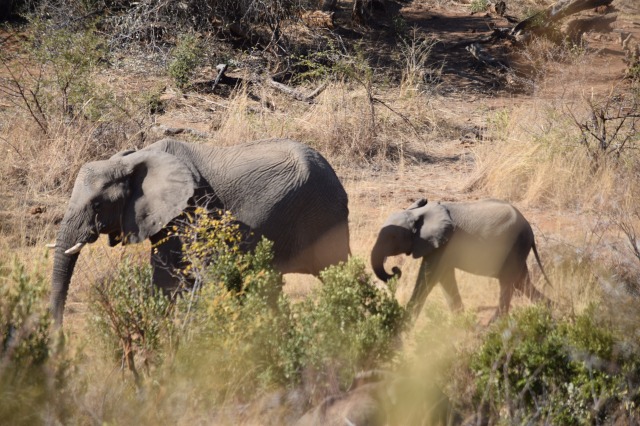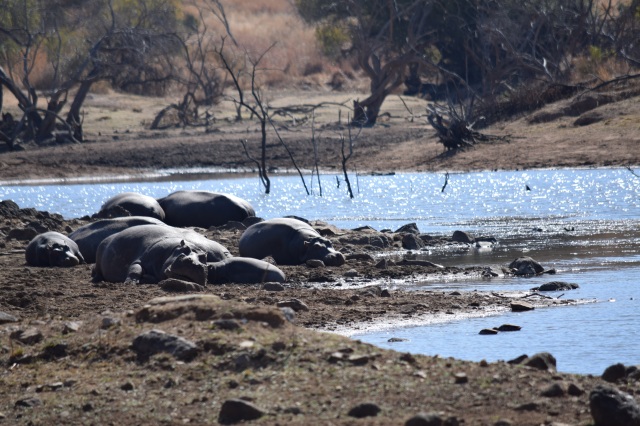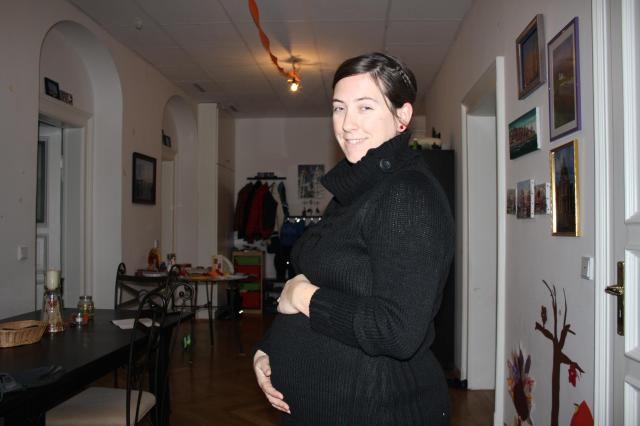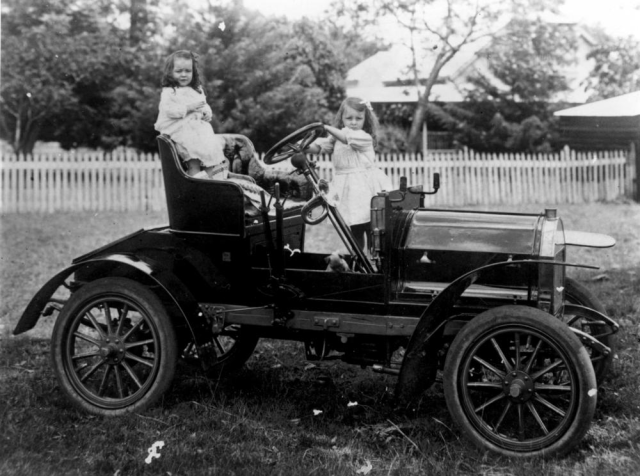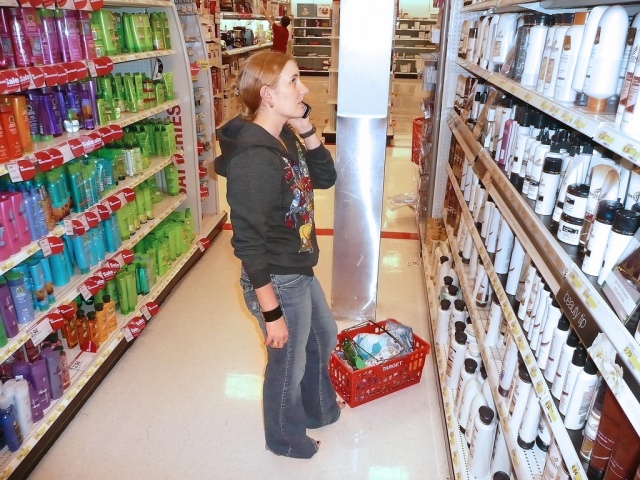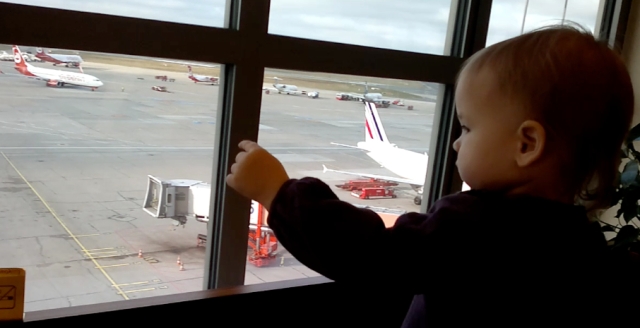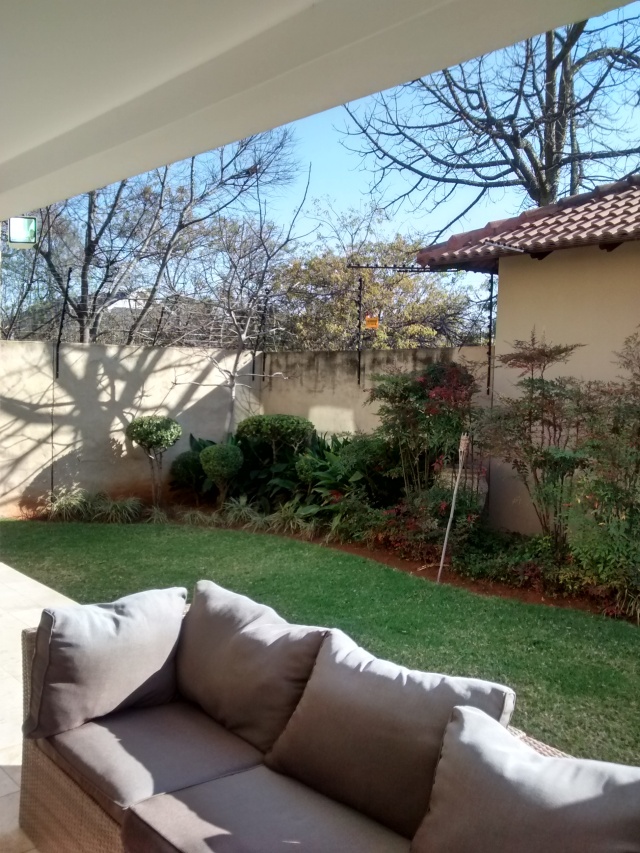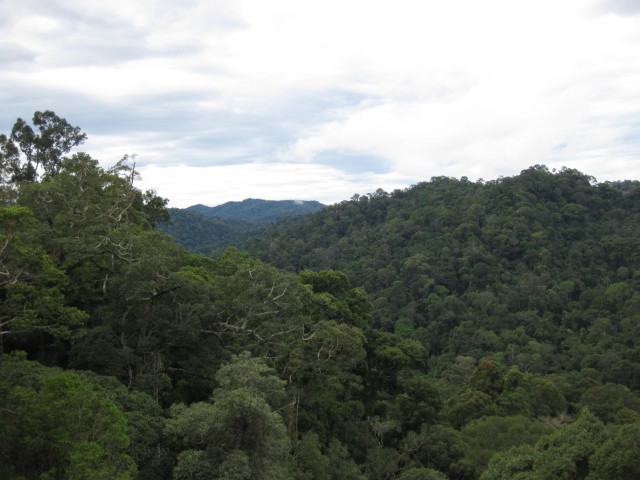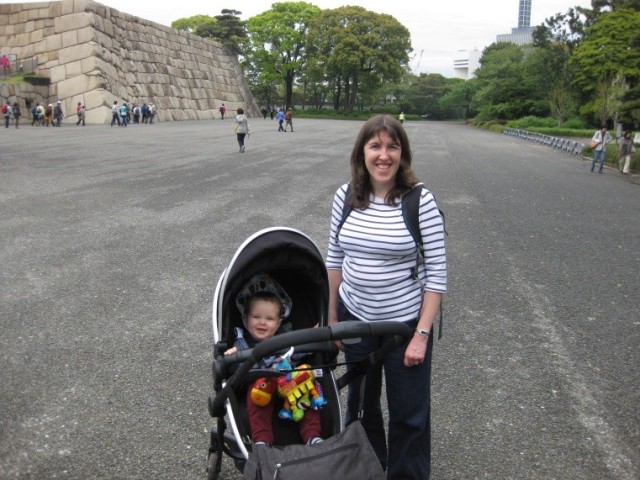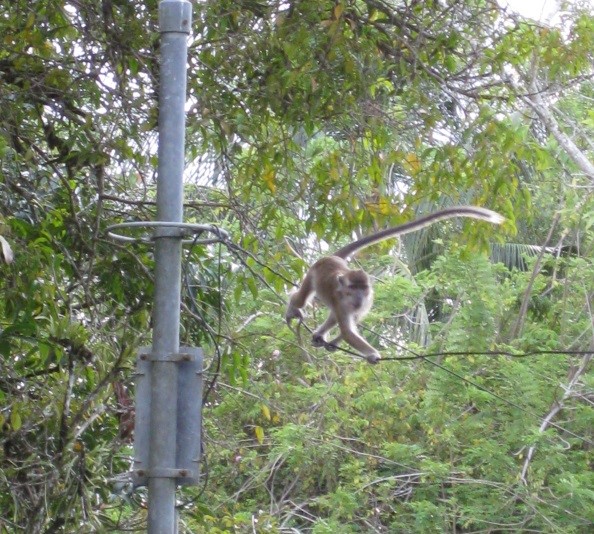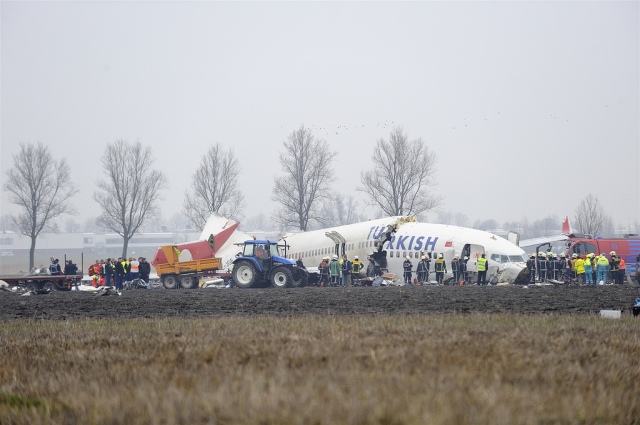In it, I discussed how easy it is to only show one side of expat life to our friends and family back home – I used Facebook as an example because that is mostly how I communicate with people I know, but this should also include Instagram, Pinterest, blogging etc. To quote myself:
Over the past few years, as Facebook has evolved, I have watched the lives of several expat friends as they moved from one country to another, settled in, started work or got the children off to school. I have seen photos of beaches and parties, cocktails and safaris….why do expats tend to focus so much on the “good-side” of life? Is it because we’re trying to prove to our friends that the life we’re living is actually as good as everyone expects it to be? Are we trying to prove it to ourselves?
Now, as I settle into our new life in South Africa, that post is coming back to haunt me a bit. Because guess what I have put up on my FB site? Ok, not beaches because we live about three million miles from the sea. But lots of posts about the weather (hot and sunny), the wildlife (impressive) and the wine (delicious and deliciously cheap). So for now, my friends back home basically think I am lying around in the sun, drunk on red wine and watching the elephants go by.
Which of course I am not.
Life is a lot more boring than my posts would have you think. There is a lot of dealing with tantrums, getting up too early, emptying the dishwasher, cursing the school for yet another confusing rule that we don’t understand, answering work emails, checking our bank accounts, trying to work out which drawer houses the vegetable peeler, buying a new vegetable peeler because it turns out no drawer houses it…
But have I posted any of this information? Not really. But why not?
This is a question I have been pondering. Back home I had plenty of updates about some (not all – no-one REALLY wants to know that we have just done our accounts…) of the above. Mostly about things like tantrums. I think it is healthy to share the bad as well as the good side of life, especially when it comes to parenting. It makes it a lot easier to know that you are not the only one whose child is lying on the floor screaming because her sister wouldn’t listen to her when she was trying to explain the rules of the “summer game” (yes that was yesterday. No I don’t know what the summer game is either).
But something stops me here. There are a lot of things I could moan about. At time of writing, I am still waiting for our air freight to turn up (let alone the sea freight) so we’re still living out of the same three suitcases we packed more than a month ago. And quite frankly I am a little fed up of these clothes. My social diary is empty, I can go all day without speaking to another soul bar for the check-out woman (I managed to spin a complement about my top into a five minute conversation yesterday!) and I am struggling to do any exercise at all as I don’t know where and when I can walk or run in this city. We had a fantastic day at a safari park, but I didn’t mention the horrendous traffic accident we passed on the way home with at least one fatality.
So boo hoo me. Although actually not boo-hoo me at all because all of the above is mixed in with the sun and the wine and the trips we have already booked to Cape Town and hot air ballooning and Kruger national park. And yes the girls are dreadfully homesick and we have had a lot of tears and I can’t get Madam M to wear anything but the same three playsuits to school every morning (when they have to leave at 6.45am!!!). But they also have a school with tiny class sizes and amazing facilities which includes a swimming pool and a stand-alone library. And we can afford to take them for pizza every weekend if we like. And our oldest daughter already has two party invites and she’s only been at school for less than a week.
Which brings me back to the updates that I have already posted, those leaving my friends with an overwhelmingly positive view of my life and why it is I don’t balance it out a bit with more of the reality. And I think it is because to do so would somehow seem ungrateful. We have been given this fantastic opportunity, and I realise how amazingly lucky we are. I know that it will also be hard, especially at the beginning, but I suppose I didn’t want to start the moaning until I could at least put it into perspective. Maybe I have gone too far the other way. Perhaps I should do it the other way round – start with the bad side and then add some of the good. But that, I suppose, is not the message I want to convey.
I will post about more mundane things. Gradually, as life here returns to some sense of normality and the excitement of seeing elephants and rhinos in the wild fades slightly, as the price of the wine stops impressing me so much and I start to get blase to the never-ending sunshine, then I am sure my posts will become more and more blah. Just like they used to be. I probably will still post when we do interesting trips, or something unusual happens. But eventually my friends and family back home will get a more realistic portrayal of what day-to-day life is like.
I just promise I won’t ever post anything about buying vegetable peelers.
First of all, can you tell me a bit about your ‘small place’
St. Croix, US Virgin Islands is 28 miles by 7 miles and it is actually the biggest of the US Virgin Islands. With 50,000 people who live here, the island is warm, breezy, beautiful and very friendly. Owned by seven different nations, the Danes owned the US Virgin Islands for almost 200 years right before it was sold to the United States in 1916, so there is a lot of Danish history here as well.
And what are the good, and not so good, things about living there?
The people of St. Croix are warm and very friendly so making friends is very easy. It’s hard to walk down the street without having a full conversation with a stranger or seeing at least a few people that you just met. The sun is always shining and the beaches are always beautiful and the water is always clear.
I’s hard to think about things that aren’t so good but we don’t have a lot of stores so if you need to have a Starbucks or Dunkin Donuts in the morning, that’s not happening here because these stores just don’t exist on the island. The same goes for most clothing chain stores and chain restaurants. But there are plenty of local bakeries and local clothing stores.
What to you find to do to occupy yourself in your spare time?
There is so much to do here that sometimes living here is exhausting. There is always a new beach to explore and snorkelling to do. There are also a lot of ruins on the island so I discover new ruins that I haven’t seen before daily. And there is also horseback riding, animals that just stroll on the side of the road and tons of crafting and street fairs going on weekly. Locals and tourists alike think of watching the sunrise (at the Eastern most point of the United States) and watching the sunset on the west side of the island an activity in itself (I do it weekly).
How easy is it to “get away” and where do you escape to? Do you feel the need to escape?
My move here was my escape so I just want to stay here and I never feel like I need to get away. But when I want to be awed, I go watch the sunset on the west side of the island and then I watch hundreds of stars shine in a sky not touched by city light.
What is the local community like? Have you felt welcomed?
The locals are extremely welcoming and happy to invite visitors and new residents alike to see the island through their eyes. Even the new locals try very hard to make everyone feel comfortable and happy to be on island. It’s hard not to enjoy island life when the locals are so friendly and helpful.
What advice would you give to someone thinking about moving to your (small place – eg island, village etc), or somewhere similar?
Enjoy your new home for what it is and don’t try to make it into a better version of what you left behind. It’s really important to accept the culture and surroundings of the new place because if you can’t do that, the whole experience will become really frustrating quickly. I accept the quirks of this island and I laugh them off because there are so many great things about living here and I can’t imagine not having this experience.
Can you tell me a bit about yourself (and your family if you have one with you) and why/how you came to be living in your small place?
I was living in Illinois and working as an attorney when I felt a strong need to change my life. Once I started researching, I felt a pull for a better quality of life and St. Croix came up as one of the first candidates in my search. When I came to this island to visit, I knew that I belonged here and I have been having the time of life ever since.
Thanks Marina for this insight into your life on a small island. I hope you continue to enjoy your life – it’ll be interesting to see how things go for you in the coming months and maybe even years! Do come back and check in with us again at some point :)
Please let me know if you live in a Small Place and would like to feature in this series. In the meantime, use the People Who Live in Small Places tag to find out how other people live in their Small Place.
However, the advantage to this is that I am still at that stage of discovering other peope’s travel secrets, and where to find out more about Pretoria, the surrounding state of Gautang and the neighbouring states of North West Province, Limpopo and Freestate, and other parts of South Africa. As well as Mozambique, Namibia, Mauritius, Botswana, Swaziland, Lesotho….yup, there are certainly going to be plenty of places to see around here!
But because there is so much out there to see, it’s actually all a little overwhelming. The guide books have page after page of places I have already bookmarked as places I would like to visit; my laptop is similarliy bursting with bookmarked pages of safari parks and moutains and wine routes and beaches….and yet there is only so much time (annoyingly, other people in my family have boring things like school and work most days, making non-stop travel a bit of a non-starter!).
So where to start? Well, one piece of advice I give in my book the Expat Partner’s Survival Guide, is to find a blog (or blogs) from the country where you are moving to and start reading the archive as soon as you know you are going there. If possible, try and find a blog written by someone who has similar interests to you, or whose family situation is the same (following someone who writes about day trips with the kids isn’t going to be much use for singletons who want to know more about nightife).
For me, the first such blog I found was Joburg Expat, which I particularly liked because blogger Sine’s children were a similar age to mine when they were here so she has some great tips for family trips. But more than this, I also love that she doesn’t sugarcoat family life – I was sold when I read one of her posts about a visit to Capetown which included various tantrums, disputes, whines and fall-outs – in other words, a totally normal family trip where you know that you are never going to be able to please everyone, all the time:
True to character, Sunshine and Jabulani take off their shoes and go play in the (freezing cold) waters of the Atlantic, while Impatience and Zax give us an earful as to their suffering on this horrible and boring beach. We are almost convinced that we are practically torturing them. For Impatience, all memory of the gift shop and the earrings seems to be wiped out. I have her repeat “I shall be grateful for the earrings I got at the gift shop” for the next 5 minutes to buy myself some peace and an opportunity to consult with Noisette about lunch plans, since the other truth in our family is that the best answer to whining is food. We settle for a nice late lunch at Zenzero on the Promenade in Camp’s Bay, where the kids are somewhat mollified with Virgin Daiquiris and Spaghetti Bolognaise.
I’ve dipped in and out of Joburg Expat many times and I am sure I will continue to do so, but I am also slowly starting to discover other blogs with further information. For example, there is Expatorama, a blog by a British expat who lives in Johannesburg and has also started a Facebook group for local “trailing spouses” (which I have also just joined: another great way to tap into local knowledge); The Average South African (which has lots of yummy posts about places to eat) and 2Summers, another Joburg dweller who blogs about life in that crazy city.
I am sure I will discover more blogs like these (including, hopefully, some Pretoria-based ones) as our time here goes on, but I just wanted to give an example of some of the sorts of blogs that are out there – and literally bursting with fabulous information.
So, other than blogs, where else am I getting my information from?
One of the things we were most excited about when we heard we were coming to South Africa was the wildlife and so, as soon as my parents decided they would come out and see us for the Christmas period this year we booked a few days at that most famous of South African parks – Kruger. Where, hopefully, we will have plenty of chances to see more of these:
But to start with, booking the park was as confusing as a chicken in a pillow factory. In other words, the more I read, the more baffled I became – until, hurrah! I found the Sanparks wesbite. And here I was able to work everything out that I needed to know – including exactly which date I needed to book our accommodation in order to make sure of getting in during what is probably the busiest time of the year (hint: it’s a year in advance!) and which camps best suited our needs. We were also able to view maps, accommodation details, hints and tips for game drives and even live webcams of animal activity. Oh, and the ever-useful forums where you know you will always be able to get an answer to pretty well any question you ever have.
In a similar vein, I have always found Trip Advisor to be a good site for general travel advice – a sort of overview of a country, region or city and then more specific reviews of restaurants, hotels and activities. Whilst you need to take some of the reviews with a pinch of salt, I have usually found that if you read enough of them you get a good idea of whether somewhere is worth visiting or not. And for South Africa-specific advise, a couple of people have already recommended WhereToStay.co.za – I can’t say if it’s any good or not as I haven’t actually used it yet, but it’s certainly a site that looks like it will be full of good accommodation options.
Finally, for more day-to-day activities (as opposed to the wonderful trips away and holidays we are planning), I have also started having a look at a website aimed at parents – Jozikids. Most of the information seems to be based on Johannesburg, but as we’re only 45 minutes drive away at least we know there’s plenty to do just up the road.
So that’s my lot for now. As I said at the start, it’s early days for me still and I am pretty sure I will soon discover more and more websites chocca with information. This country is one of the top tourist destinations in the world, with accompanying food, wine, scenery, beaches, sport, wildlife…..I know there’s no shortage of things to do. Now if only I could pursuade the rest of my family not to bother with that boring work/school stuff…..
***************************
Check out other #TrailingSpouseStories in this month’s blog crawl:
Yuliya of Tiny Expats lists down the top info sites, blogs and directories for expats living (or planning to move) in Czech Republic.
Tala of Tala Ocampo shows us around her ‘hood of Balestier Road in the island city state of Singapore
Didi of D for Delicious reveals her bookish nerdiness with her go-to resources about Dubai and the US.
But I don’t care. I don’t profess to be some big travel blogger trying to make a name for myself. I’m not hoping to get my pictures picked up by National Geographic, or shared on some viral travel site. I just want to describe a brilliant day where we saw some beautiful and magnificant animals in their natural habitat and which led to my youngest daughter laughing with such delight that she just forgot, for a moment, that she really doesn’t want to be here.
Pilansberg is the closest “proper” park to Pretoria – ie one that is a full day out of game-spotting, that has lodges and such attached should you so wish to stay close enough for those early-morning drives. If you have seen the film Blended, this is the park they visited.
Our day started at some ungodly hour – 5.30am or something horrendous. Coffee was downed as we bundled the girls into their warm clothes (it’s winter here remember and although the days are bright and sunny, it gets pretty damn cold at night!) and set off through the still-sleeping city. Thanks to the lack of traffic we were on the motorway out of town pretty quickly and watched the sun rise behind us as we sped past the little settlements scattered along the side of the road.
(Note: as well as being a fantastic opportunity to see wildlife, getting out of our little expat bubble world in Pretoria gave the children a chance to see a bit more about what life is like for the average South African. I am sure I will write more about this another time.)
When we finally arrived at the park gate, we found a rather long queue outside the ticket office – which seemed to be moving verrrrrry slowly.. When we finally got to the front, we realised this was because every car coming in had to have their numberplate noted and phone number of the occupants taken. I guess this is because they need to check that everyone has actually left the park at sundown…yup, we’re not in Disneyworld now…..
Anyway, we finally bought our tickets, got back into the car and off we went…
Only to meet by the side of the road just a few minutes in:
Yes it’s a rhino! Ok it’s not the best picture of a rhino but he/she would insist on hiding behind a bush. And I wanted to include it because it was the first “proper” siting of the day….
But things only got better because just around the corner from this rhino was….
Yes, he was in the road. And yes, he did start walking towards us flapping his ears….luckily he then decided to take a turn off the edge of the road and strode past our car just metres away. My youngest daughter, who had professed that elephants were what she wanted to see most in South Africa, laughed with complete delight. It absolutely made the whole hassle of getting here worthwhile.
Anyway we spent around 7 hours in the park in total and saw a huge number of animals, including lions (hard to spot but for the throng of cars and safari trucks by the edge of the road), warthogs, monkeys, lots more elephants, giraffes, zebras, lots of “antelopey things”, more rhinos (including a mum and her calf), hippos, a fish eagle, hornbills, loads of birds we couldn’t identify (that will have to wait until granny and grandpa are here!). wildebeest…..Anyway, here are a few of the highlights:
I have more pictures but I realise that I will probably be boring you if I put up too many! I am very conscious that we will be seeing a lot of wildlife over the next couple of years and I don’t want to be that person who everyone moans about – oh no, not ANOTHER picture of a flipping elephant! But this was our first and it was a fabulous Welcome to SA so I thought I would share it with you. There’s still plenty more to see (cheetahs, leopards, closer views of lions, chameleons, dung beetles, bushbabies, meercats, all the creatures of the sea like the whalesharks and the manta rays….) so I am sure I will post some more pictures from time to time. But for now, I will enjoy the memories of our first South African Safari.
When I followed my husband’s career to Germany with my two small children, I thought my family was complete. So when I found out I was pregnant half way into our third year living overseas, I was in a bit of a shock. Even though this would be my third child, I found myself feeling very much like a first time mommy to be as I had never experienced pre-natal care and childbirth in Germany.
Choosing an OB/GYN:
One of the first things I had to do was find an OB/GYN. The natural instinct was to ask my other expat friends for referrals and to check on some of the local Facebook and internet forums I belonged to. As it turned out, my neighbor was an American who had 6 month old twins born there in Munich, so she was a great resource for me and gave me a referral to her OB/GYN who spoke English. But as I went through the process, I discovered a few other things I should have considered and questions that I didn’t think to ask.
1) What kind of medical insurance do you have? Some doctors do not take public insurance or may already be at their maximum for publicly insured patients. If you are privately insured, did you buy the right kind of insurance to cover pre-natal care and delivery? Thankfully for me, the doctor my friend referred me too took the public insurance that we were on and it covered quite a bit.
2) Do you want a provider that does both pre-natal and delivery or would you rather have a pre-natal specialist and then the hospital’s delivery specialists? Many doctors in Germany chose to specialize in one aspect or another, though you can find doctors that do both pre-natal care and delivery. If you want to give birth in a specific hospital, you may have to have a certain doctor for your pre-natal care that is attached to that hospital. Or on the other hand, if you choose a doctor that does both, you may be limited to only being able to go to their hospital. I didn’t even realize that my provider wouldn’t be the one delivering my baby until I was 6 months pregnant. That added the stress of having to figure out if I would be able to understand the hospital staff doctors in the delivery room.
3) How comfortable are you in the language of your host country? While many doctors are able to speak adequate English, their office staff may have a very limited English. You will have to decide if you can deal with scheduling appointments, potential insurance issues, and general instructions for blood tests, weigh ins, etc. in German.
What to Expect During Appointments
The thing I loved most about my pre-natal care, and really about any care I received from other doctors in Germany, is how much the doctor does themselves. When I went in with a thyroid concern at my general practitioner’s office, the doctor decided on the spot that I should have an ultrasound and escorted me to the room next door where she performed the ultrasound herself, right there, and then discussed what she saw. There was no extra appointment needed, no films from a tech that the doctor then had to interpret and potentially decide wasn’t done at the right angle and needed to be done again.
The same applied to my pre-natal doctor. Once the weigh-ins or occasional blood tests were done by the nurses, I sat in the doctor’s formal office for any discussion, then went into a separate exam room for any ultrasounds or heart beat check-ups, all under the care of the actual doctor. Once your appointment started you felt like you had the full attention of your doctor, unlike my U.S. experience where you sat in an exam room the whole time while the doctors went from room to room checking on other patients and sending nurses in here and there to give you other information.
At the end of each appointment, all of your history and current stats are recorded in your “Mutter Pass.” This is a booklet that contains your medical history relating to your pregnancy that you carry around at all times. If you are in a car accident or taken to another doctor for any reason, having the “Mutter Pass” lets that new physician know exactly what is going on with your pregnancy, and better yet, if you are in the early stages, it alerts them to the fact that you are pregnant in case you are unconscious.
Public Attitudes toward Expectant Mothers
In general, I had very positive experiences with people out and about in daily life while I was pregnant. Most people gave up their seat for me on the bus for me or held open a door. You’ll also benefit from being waved to the front of a long line in public buildings and bathrooms. But what most people might not be prepared for is how Germans tend to consider children “community property.” By that I mean the whole “it takes a village” approach is alive and well in Germany and people, especially the elderly who you encounter at the supermarket or on the bus, have no problems asking you about how you plan to raise or feed your child. I had at least had the exposure to the breastfeeding questions when I moved to Germany with a 2 month old. So I wasn’t as surprised when a man on the bus would notice my big belly and ask me if I planned to breastfeed my child! Be prepared for a slew of advice from strangers before and after your delivery.
Choosing a Hospital
In my whole pregnancy, the one area that probably caused me the most stress was choosing and going to the hospital where I would give birth. Even before I was pregnant I had read several questions and responses to hospital selection from other expats, and the horror stories that went with them. When I discovered that my doctor wouldn’t be delivering me, I was terrified of the choice.
The most obvious hospital would be the hospital closest to my home, which was literally a 7 minute walk from my front door. The only problem was, I had heard the most negative stories about this particular hospital. On the extreme opposite end of the spectrum were the dream hospitals, the two that everyone raved about yet described getting to be able to give birth there as challenging as getting into an Ivy League school. All of the hospitals offer some sort of information night where you can tour the facilities and ask questions (in some, it is a requirement to attend before you can register).
I had two small children that would still need to be looked after while I gave birth and my proximity to them and the hospital were my most important criteria. Since we didn’t know if any family would be able to come out and be there with us when the time actually arrived, I wanted some place nearby so that my husband could go easily between my boys and the hospital if my neighbors had to watch them. I took comfort in the fact that another neighbor told me she gave birth at the same hospital, Rechts der Isar, and had a wonderful experience. This particular hospital also had a neonatal unit, something not all hospitals had in Munich. So, if something were to go wrong with the baby, I knew that she wouldn’t have to be transported to another facility away from me.
One thing that most of the hospitals had in common though, was the multi-person recovery rooms. After you have your precious angel in your arms and are taken away to the recovery wing, you may find yourself sharing a room with at least one other mother and baby and in some cases, up to four other women! So for someone who previously gave birth twice in the U.S. in a private hospital room where I labored, gave birth and recovered all in the same room with my own private bathroom, this concept did not appeal to me at all! Certain hospitals have a few private rooms that are usually reserved for those new mothers with the right kind of private insurance. It’s also important to note that the average hospital stay for a normal delivery in Germany is 3 days. I could not even imagine sharing a room with a bunch of moms and their newborns, AND their visitors all hours of the day for 3 days. The way I got around this was exercising the law that only requires mothers to stay in the hospital for 4 hours after giving birth, provided that both the mother and the baby’s health is cleared by the attending doctors. While I had heard that most hospitals will try to dissuade you from doing so, my hospital was very respectful of my choice and did not try to change my mind.
In the end, the hospital was just as good as my experiences with my births in the U.S. and have since calmed the fears of many other mother’s considering it as one of their options. My pregnancy overseas came with a few different stresses than I had experienced in the U.S. but I felt that my overall care and treatment as an expectant mother was superior to my experiences “back home” and in the end, I had a very healthy baby girl.
Heather Jenks is currently a repatriated mom of three young children living back in the United States. She spent three years as an expat spouse in Germany with her two sons that were later joined by a little sister in their final year of living in Germany. She continues to travel internationally for several weeks a year with her kids and shares her experiences on her blog www.mommyandmeoverseas.com
Have you given birth overseas? Or did you chose to go back to your home country – or even to a third country? I would love to hear your experiences – either in the comments below or if you would like to write a gurst post do get in touch via [email protected].
In other words, it’s a whole lot of things, all rolled up into one big fat ball of emotions. Out of which you tumble at some point – maybe a week after you arrive, maybe a month. Hopefully relatively unscathed – although, from previous experience, you are unlikely to be totally unchanged.
As someone with many years of expat experience behind me, you would think I would be ready for this. But every time is different – there is always something that throws that unexpected curve ball at you. And even when events are expected, even when you know with that growing sense of anticipation what is about to happen, there are still things that are just always going to be difficult. However well prepared you are.
One of these things is not having transport when you very first arrive. This always happens to me – not necessarily because we haven’t thought about it or tried to organise things in advance, but just because it is one of those things that usually does have to wait until at least a few days after you touch down. In our case, my husband has a work car and he has taken a few days away from the office to look after us – so we didn’t want the expense of a hire car until we absolutely needed it. In the meantime, we are busily looking for a permanent family car – although I appreciate this will take a bit longer.
So not a bad situation but still I don’t have a car, I would feel very nervous driving his HUGE work car and I am having to rely on him driving me and the children everywhere. We can’t really walk to many places here so we are very restricted to what and where we can go under our own steam. And even if I did get out on my own (which I will very soon – hopefully this week, possibly even tomorrow…), I don’t have a local bank card, I am still getting used to the coins, I am terrified of getting lost in the wrong part of town….
In other words, I am as helpless as a child.
As well as the lack of car and the lack of bank card, I am also still trying to muddle my way through all the various locks, doors, bolts, keys and alarms on our house. People keep telling me how to alarm or de-alarm the house; which key fits into which lock; when I should open which door and how to work out who is at the gate. It’s so confusing and I just want to shut down and ignore it all, but I know that sooner or later I will have to start taking responsibility again and work all of this out for myself. I can’t rely on my husband forever – even if he does seem to understand things like locks and gates better than me..
But the one advantage of having done this before is that I know things will get easier – and hopefully pretty quickly. I know that once I start to drive, I will start to get used to it. I will soon begin to understand the rules of the road, which honking horn is serious and which can be ignored, what those signals at roundabouts actually mean. I will be on my own in the house so will need to know how to unlock the doors and I will also be the one off to do the weekly shopping so will have to get to grips with paying for things in this country (after all, how different can it be from paying for things back home?).
I think we are all allowed a little “cocooning” time at the start of our new lives abroad. But I know that this time will be over soon. I will have to take a deep breath and start living here. Ignore my fears about not knowing what to do when I hit someones wing mirror and they start to threaten me, or I accidentally set off the alarm in our house trying to open one of the doors. Sometimes the anticipation of these things is actually a lot worse than the reality – and you find that once you have gotten over the first hurdle (get in that car! visit that supermarket!), you start to wonder what you were so worried about.
For now, though, just for a couple more days, I’m going to enjoy being the child, getting driven around, acting dumb about the house locks and letting someone else do the shopping. It’s actually quite nice not having adult responsibilities! Perhaps I should keep up the scardy cat act for a little while longer…..
Shopping photo courtesy of colorblindPICASO
Journeys can be memorable for many reasons. Previously I have written about a journey that was memorable because I spent 12 hours at Moscow airport – with a sulky brother who wouldn’t speak to me. And another journey that led to us spending the day in a hotel in Dubai – when we weren’t ever meant to be anywhere near that country! And guest poster Pheobe from Lou Messugo wrote about her very memorable journey in Mongolia – on a very dodgy airline. But they can also be memorable because it’s the first time you have ever done something, too. Here, in the latest in my Memorable Journey series, Yuliya of the Tiny Expats blog describes what it was like to take their eldest daughter on a plane for the first time.
For Clara’s Memorable Journey series, I decided to tell you about our older daughter’s first experience of relocation. We were moving from Hamburg, Germany, to Shanghai, China, and had to change flights in Dubai.
This was the first flight for our daughter and it was also the first flight for us, as parents, with a small child (she was 1 year and 4 months old), so we had absolutely no idea what to expect! Hamburg-Dubai flight lasts approximately 6 hours and we hoped that our daughter’s day nap could supply us with at least an hour or two of free time to sit back and relax a little. In my experience, plans that include small kids don’t usually work out the way you want them to. A trip to the airport, all the security checks and detailed investigation of all corners of a a waiting lounge proved to be quite exhausting, so our daughter fell asleep in my arms in the airport and decided to wake up, when we were invited to board our plane. “Would you like any newspapers or magazines for your entertainment during the flight?” asked the flight attendant. “We believe, we will have more than enough entertainment on our hands as it is..” came our gloomy answer.
One thing I can say for sure – I was very happy that I still breastfed at that time. You just can’t beat the benefits of breastfeeding during long journeys! I didn’t have to worry whether she would like the food we could get in the airports and on the flights – she could always top up with milk. And, of course, it’s the direct route to tranquility, albeit a temporary one.
The 6 hours went past surprisingly quickly. Although, our daughter already had a nap, there was so much to discover – buttons, screens, weird chairs, strange windows. Being in a business class didn’t hurt as well. When we landed in Dubai, we could exhale in relief – now just a few hours of wait in a lounge and a night flight to Shanghai.
Our wait in Dubai was not bad at all. There was a play room, where either my husband or I babysat our toddler. It got more difficult as it started to get closer to bed time. Our flight to Shanghai was scheduled to depart around midnight and we hoped to be able to entertain our kid until we boarded the plane, so she could fall asleep for the night. She was excited in the new surroundings and stayed up longer than usual in any case, but she still was a one and a half year old, who could switch off anywhere if she needed to.
Like a professional baby carrier that I was, I took her cuddled up in my arms all through the long walkways and check in. My husband went with a stroller and carry on. I would’ve preferred our daughter to be in the stroller, but she was too tired/stressed out and in a serious need of a cuddle, so the stroller was just an unacceptable option.
As soon as we sat down and I buckled her in together with me, she just switched off in an instant. In about 9 hours, I actually had to wake her up, as the plane was about to land in Shanghai. The night went by quickly, only interrupted by some milk top ups (I think, more for comfort than for food), but she didn’t even fully wake up for those.
It was a morning in Shanghai, as bright as it could get, with a yellowish disk in the sky trying to shine through the grey smog. That was going to be the next chapter in our expat lives, totally different to Hamburg.
P.S. If I could give you an advice for taking small kids on a plane, it would pretty much come down to these points:
– continue breastfeeding at least until after the relocation – it’s just such a great help!
– night flights are the best
– if possible, don’t do it without your partner; you would, of course, survive, doing it alone, but at a greater cost
Thank you Yuliya for sharing your Memorable Journey with us, and some great tips there. I would particularly agree with the point about continuing to breastfeed if you possibly can – it is hugely reassuring to know you will always be able to feed your baby, whatever the circumstances. If anyone else suddenly remembers a journey they have taken that might make a good yarn, please do get in touch. It doesn’t have to be a flight or even a long journey – a train or bus ride, a walk, a horse or donkey ride……
I am currently sitting in a very bare and frankly quite chilly house, the children are rattling around somewhere while – although it is my birthday (!) – my husband is at work :( . He has promised to be home in time to take us out to lunch though.
Last night we tried to go out for a meal but were thwarted by load shedding – a particular South African problem whereby there isn’t enough electricity to go round so each district has to do without power for a few hours, a couple of times each week. Unbeknownst to us (as many, many things are at this stage), last night was the turn of the area where we live. Just as we were arriving at the place we had chosen to eat all the lights went out. We entered the mall just as everyone else was streaming out. Shops were shut, the restaurants were packing up. Luckily the supermarket must have a generator (as, luckily, do we) and was still open so we bought a ready-cooked chicken and some salad and ate at home. Ah well, you win some, you lose some.
As well as load-shedding, I have also been introduced to one of the other problems in this country – crime and security – by having to fight our way through three layers and about five locks to get on to our patio this morning. And that isn’t counting the “keep” door at the top of our stairs. And not forgetting the electric wire around our house and the guard at the gate to our compound. You definitely feel like you are living in a well-protected fortress.
Other “issues” I have so far encountered though are as much a part of moving somewhere new as moving to South Africa: being woken early in the morning by unusual sounds (in this case the screechy hadada birds – a type of ibis whose noise isn’t that dissimilar to our seagulls back home); not being able to find anything in the kitchen cupboards (and there not being much to find anyway – we had to wait for the dishwasher to finish this morning before we could have more than one knife between us for our toast); knowing where to buy decent peanut butter that hasn’t got a ton of sugar added; leaky taps and showers, curtains that don’t quite fit in the middle…..
But teething problems, lack of electricity and security issues aside, there are certainly plenty of compensations. The pound is very strong against the rand at the moment, which means that a decent bottle of red wine costs about a third of the price you would pay in the UK. It’s cold at night, but the days are full of bright sunshine and the winter temperatures warmer than back home in England (where rain seems to be the order of the day). We might be living behind bars and barbed wire but every day I am grateful for how well protected we are by seeing how the majority of people have to live in this “beautiful but troubled” (as everyone seems to label it) country.
Yes, overall I think we are going to like it here. It’s been a long journey from the day we first told the girls we were moving to South Africa , I realise we are still in the very early, “honeymoon” stage and there will be many mountains to climb ahead of us. But I am sure in the end it will all be worth it.
Anyone else out there just moved? How are you enjoying your first few days?
Thanks for being part of this series, Liz. First of all, can you tell me a bit about your ‘small place’
Brunei Darussalam is a small country nestled between two Malaysian states on the island of Borneo. It has a population of around 400,000 and a land mass of 5675 square kilometres. Brunei has an equatorial climate and is mainly covered in rainforest. Many people have no idea where it is, and often think I live in Dubai
And so what are the good, and not so good, things about living there?
Brunei’s nickname is the ‘abode of peace’, and on the plus side it really is tranquil here: things move at their own pace, there is little crime, few crowds and a great sense of community. There is some beautiful primary rainforest, and very little tourism so you can really feel alone in there (apart from the wildlife). It’s sunny all year round and the whole of South-East Asia is on our doorstep – we have had some fantastic travel opportunities since moving here. The cost of living is fairly cheap so there’s plenty left over for some holidays of a lifetime!
I’ve always preferred to live in a ‘quiet’ place, yet this took on a whole new meaning when we moved to Brunei! It is such a small country that it takes less than two hours to drive from one end to the other (and would take even less time if the roads were better). Most of the expats live on camp in close proximity to one another so there is a real sense of community, although it can get a bit too close sometimes – when I got pregnant pretty much everyone knew because I stopped drinking, although they were kind enough to not ask me about it until I was ready to announce the news.
The small population means that there is very little to do in terms of anything – shopping, entertainment, culture… In Brunei you have to make your own entertainment, which brings me on to the next question.
What to you find to do to occupy yourself in your spare time?
There are many other ‘trailing spouses’ here; due to restrictions with work permits it is very difficult for spouses to legally gain employment, but as a result there are numerous clubs and societies to reflect the diverse interests of an international community. Pre-baby I spent a lot of my time volunteering, and I still help out with the Brownies (Girl Guides aged 7-10) as well as chairing the library. There is a club for the expats which has an outdoor swimming pool, gym, restaurants and events held by the different sections. There are also a large number of exercise classes, and a lot of very fit people around!
Entertainment is self-made but there are people here from all walks of life and with all kinds of qualifications, which means that there is a lot going on.

Enjoying a beer in a ‘bar’ – the fact that this photo is several years old shows how rare an occurrence that is in Brunei!
When my son was born it was a bit like moving here all over again as I swapped my old routine for one full of baby groups and playdates. It is a bit more restrictive now in terms of getting out and about; due to the very high temperatures and mosquitoes I do not spend nearly as much time outside as I would like to. But there are plenty of activities for the little ones to attend.
How easy is it to “get away” and where do you escape to? Do you feel the need to escape?
Yes, I certainly feel the need to escape! Living in Brunei is wonderful, most of the time. But the longer I spend here, the more I start to miss things like theatre, music, eating out in good restaurants, going to a bar… And the need to escape builds up. Sometimes just a weekend away to Singapore for a culture binge is enough, other times a longer holiday to somewhere with nice toilets and good shops… My priorities have certainly changed since living here! Luckily it is pretty easy to get away, although usually you need to change flights at one of the main hubs such as Kuala Lumpur or Singapore, which makes the journey time add up. For a quick fix, we can drive across the border to Miri in Malaysia in one and a half hours for a weekend getaway. Our most recent escape was to Japan, but we are in easy flying distance to many beautiful destinations such as Thailand, Vietnam, Bali… Sadly too many places to visit on a four year posting!
What is the local community like? Have you felt welcomed?
The Brunians are tremendously welcoming, as is the rest of the expat community. I was nervous about moving initially as I can be quite shy and usually struggle to make friends to begin with in a new place. But it took only a couple of months before I had settled in here and made some good friends. Because the turnover of expats is quite high in Brunei, with most contracts lasting four years or less, friendships are much more fluid and tend to progress faster – it is not uncommon to be invited round to someone’s house after only one meeting, and the numerous clubs and societies mean that it’s easy to meet people without having to go out of your way. Although the official language of Brunei is Malay, most people speak English, which makes everything so much easier.
What advice would you give to someone thinking about moving to your (small place – eg island, village etc), or somewhere similar?
Try to manage your expectations. I know of some people who have turned up here and absolutely hated it because they have spent all their time comparing it to their home or previous postings. There are many challenges of living in such a small place, but you get used to it after a while and you can always ship anything that you can’t find. Lastly, the internet is a life-line when you live in a small place, but make sure you switch up and venture out of the house sometimes!
Can you tell me a bit about yourself (and your family if you have one with you) and why/how you came to be living in your small place?
My husband works for an oil company and we moved in 2011 when he applied for a job abroad and was awarded a post in Brunei. My son was born last year (in Brunei) and has just turned one. I used to work as an English teacher in the UK before we moved, but I found that I soon got used to being a trailing spouse and now you would have to persuade me to give it up and return to work! Our contract is up at the end of this year, so we will be moving on to a new (bigger) place soon if all goes to plan.
Thank you so much Liz! I’ve certainly learned a lot about a country I knew very little about. Good luck with wherever you move on to next! Please don’t forget to check out my other Small Places blogs by clicking on the tag below – and let me know if you live somewhere small and would like to be featured right here on this blog :)
Irrational fears
I have never not been an expat. As a child we lived in some benign places (Norway, the UK and the Netherlands) but also experienced some more challenging postings. This has coloured how I relate to the expat experiences our own children have and I try, wherever possible, to see things through their eyes.
Age 11, I was parachuted into a British boarding school far from the culture I had grown up with. Following a first term at my new school, I had to travel to Lagos on my own. (Yes the airlines supervise UM (unaccompanied minors) but the help they gave in the 1980s was close to useless so I had to fend for myself). I remember sitting on the plane to Nigeria for the first time having had no correspondence with my parents for 4 months. I was very worried about what I would find on arrival; I even thought my family would have become africans because they were now living there and I wondered if I would recognise them with brown skin and curly hair. This crazy memory makes me realize that children, no matter how mature and capable, can become irrationally worried about things.
A few months ago our son, who had previously spoken good Russian was refusing to ‘understand’ it any more. He was also failing to progress in his Mandarin and Bahasa Malay lessons. It turned out that he realised that I no longer spoke my birth language (Dutch) easily and that it takes me some time to get back into the groove, mostly because I have no real reason to speak it now my mother and grandmother are dead. He was worried that he might forget English if he learned another language. It was another irrational fear that, when analysed, makes perfect sense in the mind of an expat child.
Handling emergency situations with children
One time, when leaving Nigeria I got caught up in an armed robbery at the airport. Our flight could not leave as we were in lockdown and had been sent to the arrivals hall to collect luggage. We heard shots in the unloading bay and 5 bodies came up the conveyer belt. My mother took me to her car and told the driver to wait somewhere safe she then went off to investigate. I knew that I would be safe if I did what my mother told me with no questions asked and I trusted her to know what to do. Luckily our children have not been involved in an armed robbery or anything like that but we make sure that they know that when we speak in a certain tone they must do as they are told (being absolutely silent when the car is hit by a sudden blizzard for example) and that we will explain the reasons why later. We also make sure that they have confidence that we can handle any situation we are in (even if we don’t) and that our children are never an outlet for our fears.
We lived in South East Turkey in the 1990s (enough said). It was possibly the most dangerous posting we have ever had. A bomb went off in the building next to us while I was doing some work experience with a family friend, my parents were directly involved in another bomb scare and we had to check under the car on a daily basis. A guard followed me if I went out and flights to the local airport were in danger of being shot down and these experiences were the tip of the iceberg. Every time I called to reconfirm our flights (remember those days) I was told the airline advised against travel there. My greatest fear was that I would be called in to the housemistress’ room to be told my parents had been killed and I used to think carefully about how I would tell my sister. I was scared stiff for three years straight. My parents were always scrupulously honest about dangers and issues that arose which helped me to worry less. I also got the school to let me have R4 (Radio 4) on late at night in my room so I could sleep knowing that there were no reported issues at home.
Being honest
From this I have learned never to brush things under the carpet, we have always made sure that our children are aware of everything they need to be without blowing things up out of all proportion. We also make sure that they have the props they need to feel safe. My father in law died just before we left the UK for Kazakhstan. They were very young but felt his loss keenly and when they first went abroad they were concerned that another family member might disappear or that they would never see them again. We have always promised them that we will let them know if they need to worry and make sure that they have regular ‘phone and skype contact. Hopefully this helps to dispel some of their concern.
Just after we arrived in Sarawak the terrible news came through about MH17. A child in the children’s new school lost a parent and many others in the community were impacted. Our children heard what had happened and they knew that family would be coming to visit us via the same route and that we would be flying with Malaysian Airlines whenever we travelled out of country. They also knew the Ukraine, Kiev being a regular stop over on flights to and from Kazakhstan. Knowing how I would have reacted to the news as a child helped to inform the way we spoke with our two. We were very honest about what had happened and why and we have been similarly upfront about recent terrorist attacks. We feel that if the children are prepared for the world being a scary place while knowing that there are good and decent people in it they will be better able to handle it as they grow up and have more independent experiences in life.
One of the great benefits of expat life is the independence, maturity and capability it fosters in children from a young age. I certainly hope that our children gain those benefits although I also hope they avoid bombs and shootings for a few years yet.
(photo: RNW.org)
Have you been in any emergency situations with your own children? Or needed to speak to them about something that has happened? How have you handled it? How honest have you been with them?
